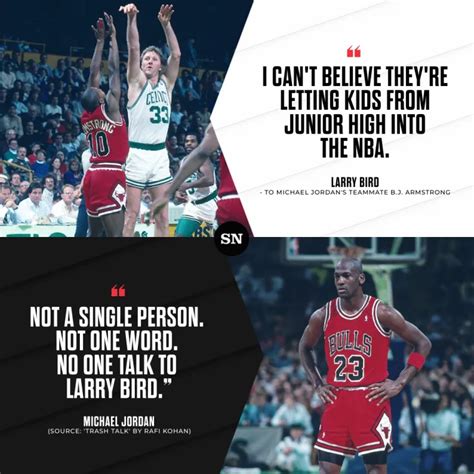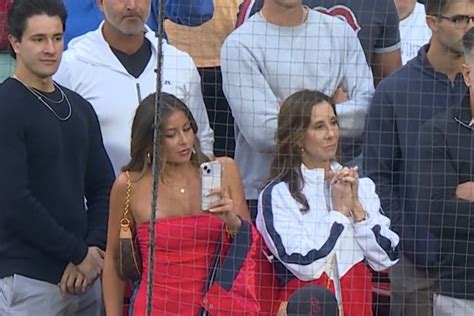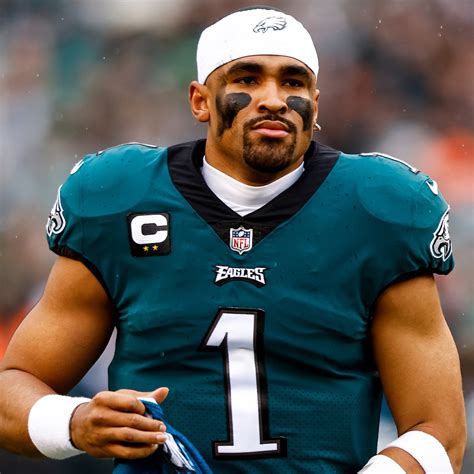
Larry Bird, known for his fierce competitiveness and legendary trash talk, reportedly directed some choice words towards Pete Maravich’s son, Jaeson Maravich, during a recent Indiana Pacers practice, telling him, “If you were f***ing good, they wouldn’t double team me.” The incident, witnessed by several individuals present at the practice facility, has sparked debate about the boundaries of acceptable behavior in a competitive environment, especially given Bird’s iconic status and the context of Maravich’s family legacy.
The exchange occurred as Bird, a Pacers consultant, was observing a practice session. Jaeson Maravich, who was present but not actively participating in the practice, apparently made a comment that drew Bird’s ire. According to sources who spoke on the condition of anonymity due to the sensitivity of the matter, Bird’s response was swift and direct. The quote, initially reported by various sports outlets, quickly circulated online, generating a wide range of reactions from current and former players, analysts, and fans.
Bird’s reputation as one of the greatest players in NBA history is inextricably linked to his mental toughness and psychological warfare tactics. Throughout his career with the Boston Celtics, he routinely engaged in trash talk, often using it to gain a competitive edge over his opponents. Stories of his verbal jabs and pre-game predictions have become legendary, contributing to his mystique and solidifying his status as one of the game’s most compelling figures.
Pete Maravich, Jaeson’s father, was also a legendary basketball figure, renowned for his dazzling ball-handling skills, scoring prowess, and flashy style of play. “Pistol Pete,” as he was known, tragically passed away at the young age of 40 due to a previously undetected heart defect. His untimely death cut short a promising post-NBA career and left a lasting void in the basketball world.
The context of Bird’s comments, directed at the son of a deceased Hall of Famer, has added another layer of complexity to the situation. While some have defended Bird’s remarks as simply part of his competitive nature, others have criticized them as insensitive and disrespectful. The debate highlights the ongoing discussion about the role of trash talk in sports and the line between acceptable banter and personal attacks.
“It’s just Larry being Larry,” one former Celtics teammate said, defending Bird’s comments. “He’s always been like that, even in practice. It’s how he motivates himself and those around him.”
However, others have taken a different view. “There’s a difference between competitive trash talk and being disrespectful,” said a former NBA player who wished to remain anonymous. “Bringing someone’s family into it, especially someone who is no longer with us, is crossing a line.”
The Pacers organization has not released an official statement regarding the incident. However, sources within the team have indicated that the matter has been addressed internally. It remains to be seen whether Bird’s comments will have any lasting impact on his role with the team or his public image.
The incident also raises broader questions about the culture of professional sports and the expectations placed on athletes and coaches. While competition is encouraged and trash talk is often seen as part of the game, there is a growing awareness of the need for respect and sensitivity, particularly when dealing with sensitive personal matters. As the sports world continues to evolve, it is likely that these types of incidents will continue to spark debate and fuel discussions about the boundaries of acceptable behavior.
The situation involving Bird and Maravich underscores the complex relationship between competition, respect, and personal boundaries in the world of professional sports. It serves as a reminder that even legendary figures are not immune to criticism and that their actions, both on and off the court, have the potential to impact others.
In-Depth Analysis and Background:
Larry Bird’s legacy is built not only on his exceptional basketball skills but also on his mastery of psychological warfare. He wasn’t just a player; he was a strategist who used trash talk as a weapon. His legendary battles with players like Magic Johnson, Michael Jordan, and Julius Erving were often as much about mental dominance as they were about physical prowess. Bird understood that getting into his opponent’s head could give him a crucial advantage.
His approach to trash talk was unique. He wasn’t simply insulting; he was calculated. He would often predict what he was going to do on the court, then execute it flawlessly, leaving his opponents bewildered and demoralized. For example, he famously told the entire Phoenix Suns bench that he was going to hit the game-winning shot in their face, and then proceeded to do exactly that. These stories have become part of NBA lore, solidifying Bird’s reputation as a master of the mental game.
However, the line between competitive trash talk and personal attacks has always been a subject of debate. While some argue that trash talk is an essential part of the competitive spirit, others believe that it can cross the line into disrespect and even bullying. In recent years, there has been a growing awareness of the importance of mental health and emotional well-being in sports, leading to a greater emphasis on creating a positive and supportive environment for athletes.
Pete Maravich, on the other hand, was a different kind of legend. While he possessed a fierce competitive spirit, he was also known for his humility and grace. His flamboyant style of play and his infectious enthusiasm made him a fan favorite. He was a showman who loved to entertain, but he always maintained a sense of sportsmanship and respect for his opponents.
Maravich’s untimely death at the age of 40 was a shock to the basketball world. He collapsed during a pickup game due to a previously undetected heart defect. His passing served as a reminder of the fragility of life and the importance of cherishing every moment.
The fact that Bird’s comments were directed at Maravich’s son, Jaeson, adds another layer of complexity to the situation. Jaeson Maravich has largely remained out of the public eye, choosing to live a relatively private life. He has occasionally spoken about his father’s legacy and the impact that his death had on his family.
The incident involving Bird and Maravich raises questions about the responsibility that public figures have to be mindful of their words and actions. While Bird is entitled to his opinions, his comments have the potential to cause pain and offense, particularly to those who are already grieving the loss of a loved one.
The response to Bird’s comments has been mixed. Some have defended him, arguing that he was simply being true to his nature and that his words should not be taken too seriously. Others have criticized him, arguing that his comments were insensitive and disrespectful, particularly given the context of Maravich’s legacy.
Ultimately, the incident serves as a reminder that even legendary figures are not immune to criticism and that their actions have consequences. It also highlights the ongoing debate about the role of trash talk in sports and the line between acceptable banter and personal attacks. As the sports world continues to evolve, it is likely that these types of incidents will continue to spark debate and fuel discussions about the boundaries of acceptable behavior.
The role of sports organizations in addressing these types of incidents is also crucial. While individual athletes and coaches are responsible for their own behavior, organizations have a responsibility to create a culture of respect and accountability. This includes providing training and education on issues such as harassment, discrimination, and appropriate workplace conduct. It also includes having clear policies and procedures for addressing complaints and taking disciplinary action when necessary.
The Pacers organization’s response to the incident involving Bird and Maravich will be closely watched. It will be seen as a test of the organization’s commitment to creating a positive and respectful environment for its players and staff. It will also be seen as a reflection of the organization’s values and its commitment to upholding the highest standards of ethical conduct.
In the broader context of professional sports, the incident serves as a reminder of the importance of promoting sportsmanship and ethical behavior. While competition is encouraged and trash talk is often seen as part of the game, it is essential to remember that sports are ultimately about teamwork, respect, and fair play. Athletes and coaches have a responsibility to be role models for young people and to promote the values of sportsmanship both on and off the field.
The incident involving Bird and Maravich also highlights the need for greater awareness of mental health issues in sports. Athletes and coaches are under immense pressure to perform at the highest level, and this can take a toll on their mental health. It is essential to create a supportive environment where athletes feel comfortable seeking help when they need it. This includes providing access to mental health professionals and promoting a culture of openness and understanding.
As the sports world continues to evolve, it is likely that issues related to trash talk, respect, and mental health will continue to be at the forefront of discussions. It is essential to engage in these discussions in a thoughtful and constructive manner, with the goal of creating a more positive and supportive environment for athletes and fans alike.
Expanding the Context:
Larry Bird’s era in the NBA was characterized by intense rivalries and a more physical, confrontational style of play than is often seen today. Trash talk was not just accepted; it was almost expected. Players used verbal jabs to try to get under each other’s skin, to gain a psychological edge. Bird was a master of this art, using his wit and intelligence to unsettle his opponents.
However, the game has changed. The NBA has become more global, more focused on skill and athleticism, and less tolerant of overt aggression and disrespect. While trash talk still exists, it is often more subtle and less personal than it was in Bird’s day.
The rise of social media has also had a significant impact on the way athletes communicate and interact with each other. Every comment and action is now subject to instant scrutiny and judgment. This has led to a greater emphasis on being politically correct and avoiding controversy.
In this context, Bird’s comments to Jaeson Maravich can be seen as a relic of a bygone era. While some may defend them as simply being part of his competitive nature, others may view them as insensitive and out of touch with the current social climate.
The incident also raises questions about the role of aging athletes and coaches in the modern game. While their experience and knowledge are valuable assets, they may also struggle to adapt to the changing norms and expectations. It is important for these individuals to be aware of the potential for their words and actions to be misinterpreted or cause offense, and to be willing to learn and grow.
Furthermore, the legacy of Pete Maravich deserves consideration. He was not only a gifted basketball player but also a charismatic and beloved figure. His untimely death left a void in the basketball world, and his memory is still cherished by many. Bird’s comments to Maravich’s son could be seen as disrespectful to his legacy, regardless of his intent.
The situation highlights the importance of context and sensitivity when dealing with sensitive personal matters. While Bird may have simply been trying to make a point about competition, his words had the potential to cause pain and offense to Jaeson Maravich and others who admired his father.
Ultimately, the incident serves as a reminder that even legendary figures are not above reproach and that their actions have consequences. It also underscores the need for greater awareness of mental health issues, respect for others, and the importance of promoting sportsmanship in the world of professional sports.
The response from the Indiana Pacers organization will be crucial. They must demonstrate that they take the matter seriously and are committed to creating a positive and respectful environment for their players and staff. This may involve issuing a statement condemning Bird’s comments, providing sensitivity training to its employees, or taking other appropriate disciplinary actions.
The incident also presents an opportunity for the NBA to reaffirm its commitment to promoting ethical behavior and sportsmanship. The league could use this as a teaching moment to educate players, coaches, and fans about the importance of respect, sensitivity, and the potential harm that can be caused by trash talk.
Further Expansion:
The digital age amplifies every action and utterance, turning fleeting moments into viral sensations, a reality that undoubtedly contributed to the swift dissemination of the Bird-Maravich incident. What might have been a private exchange, quickly transformed into public fodder, debated and dissected across social media platforms and traditional news outlets. This instantaneous and widespread dissemination underscores the challenges faced by public figures in maintaining any semblance of privacy, and the responsibility that comes with being constantly under the microscope.
The incident also touches upon the evolving definition of “trash talk” in sports. Once perceived as a relatively harmless form of competitive banter, it is now increasingly scrutinized for its potential to cross the line into harassment, bullying, or even hate speech. The line between playful ribbing and harmful verbal abuse is often subjective, and can depend on a variety of factors, including the context of the exchange, the relationship between the individuals involved, and the sensitivity of the topic being discussed.
In recent years, there has been a growing awareness of the potential psychological impact of trash talk, particularly on young athletes. Studies have shown that verbal abuse can lead to anxiety, depression, and even suicidal thoughts. As a result, many sports organizations are now implementing stricter policies to address trash talk and promote a more positive and supportive environment for athletes.
The incident involving Bird and Maravich also raises questions about the role of nostalgia in shaping our perceptions of the past. Many fans romanticize the “golden era” of basketball, when trash talk was more prevalent and players seemed to have thicker skins. However, it is important to remember that those times were not always as idyllic as they seem. The prevalence of trash talk also contributed to a culture of intimidation and disrespect, which could have negative consequences for athletes’ mental health and well-being.
As the sports world continues to evolve, it is essential to find a balance between honoring the traditions of the past and embracing the values of the present. This means acknowledging the positive aspects of trash talk, such as its ability to motivate and entertain, while also recognizing its potential to cause harm. It also means promoting a culture of respect, sensitivity, and empathy, where athletes feel comfortable expressing themselves without fear of being ridiculed or judged.
The legacy of Larry Bird remains complex. His undeniable achievements on the court are intertwined with his persona as a relentless competitor who occasionally pushed the boundaries of acceptable behavior. The incident with Jaeson Maravich adds another layer to this complexity, prompting a re-evaluation of his actions and their impact on others.
Frequently Asked Questions (FAQ):
Q1: What exactly did Larry Bird say to Jaeson Maravich?
A: According to reports, Larry Bird told Jaeson Maravich, “If you were f***ing good, they wouldn’t double team me.” This comment was reportedly made during an Indiana Pacers practice.
Q2: Why did Larry Bird make this comment to Pete Maravich’s son?
A: The exact reason is not fully clear, but sources indicate that Jaeson Maravich made a comment that provoked Bird’s response. The specific nature of Jaeson Maravich’s comment has not been publicly disclosed.
Q3: What has been the reaction to Larry Bird’s comments?
A: The reaction has been mixed. Some people defend Bird, saying it’s just his competitive nature, while others criticize him for being insensitive, especially given Pete Maravich’s passing. Former players and analysts have weighed in on both sides of the issue.
Q4: Has the Indiana Pacers organization commented on the incident?
A: The Pacers organization has not released an official statement. However, sources within the team have indicated that the matter has been addressed internally.
Q5: What does this incident say about trash talk in professional sports today?
A: The incident highlights the ongoing debate about the role of trash talk in sports. While some see it as part of the game, others believe it can cross the line into disrespect, particularly when directed at someone’s family or personal history. The incident serves as a reminder of the need for respect and sensitivity in competitive environments.









